28 jan 2017

Palestine International Forum for Information and Communication (Tawasul) presented some media contents and policies in order to confront the attempts to relocate the US Embassy from Tel Aviv to Occupied Jerusalem.
In a statement, the forum said that the most significant policy in this regard is highlighting the Arab and Islamic dimension of the city of Jerusalem, and called on journalists to pursue variant media relations in order to mobilize the question among the friend and foreign elite.
The forum urged to encourage the public opinion along with factions and civil institutions to exert efforts in defense of Occupied Jerusalem.
The Palestinian people, Christians and Muslims, are against the American intention to move the US Embassy to Occupied Jerusalem and perceive the move as a violation of Palestinians’ religious, humanitarian and cultural rights, the forum underlined.
In a statement, the forum said that the most significant policy in this regard is highlighting the Arab and Islamic dimension of the city of Jerusalem, and called on journalists to pursue variant media relations in order to mobilize the question among the friend and foreign elite.
The forum urged to encourage the public opinion along with factions and civil institutions to exert efforts in defense of Occupied Jerusalem.
The Palestinian people, Christians and Muslims, are against the American intention to move the US Embassy to Occupied Jerusalem and perceive the move as a violation of Palestinians’ religious, humanitarian and cultural rights, the forum underlined.
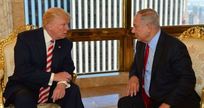
11 Jews assume top positions in the administration of the new US president Donald Trump, according to an Israeli report published on Friday.
Under the headline "Meet the top Jewish officials in the Trump administration", the right-wing Israeli newspaper Jerusalem Post introduced the 11 influential Jewish figures working alongside Trump.
However, the newspaper pointed out that Trump won 24% of the Jewish vote.
According to the Paper, the 11 Jewish figures are:
Jared Kushner
Kushner is Trump's 36-year-old son-in-law and will serve as his senior advisor.
The Paper said that Kushner will not receive a salary and will focus on the Middle East and Israel, partnership with the private sector, and free trade.
It added, “Kushner married Trump's daughter in 2009 and played an essential role in the president's election campaign especially in Israel."
David Friedman
Friedman, who is in his late fifties, has worked for a long time as Trump's lawyer. He speaks Hebrew and owns a house in al-Talbiya neighborhood in Jerusalem.
Trump announced Friedman US ambassador to Israel.
Jerusalem Post noted that Friedman "funded and declared support for the Israeli settlements and expressed his doubts about the future of the two-state solution."
Jason Greenblatt
He is an Orthodox Jew who studied in a religious school in the West Bank in the mid-eighties and did armed guard duty there, according to the newspaper.
Greenblatt is going to serve as special representative for international negotiations with focus on the Palestinian-Israeli conflict, the US-Cuba relations, and the US trade agreements with other countries.
Greenblatt told the Israeli Army Radio in November 2016 that Trump "will not impose any solution on Israel" and that "he doesn't view the Jewish settlements as an obstacle to peace process."
Steven Mnuchin
Mnuchin, 54, will serve as the US Treasury secretary.
The Paper mentioned that Trump and Mnuchin have been friends for 15 years, and before assuming the financial affairs of Trump's campaign, Mnuchin served as his advisor.
Stephen Miller
Miller, 31, was named senior adviser for policy.
The Paper pointed out that Miller, who worked previously as a parliamentary assistant, played a vital role in Trump's campaign by writing speeches.
Carl Icahn
An 80-year-old businessman and investor who is going to serve as special adviser in the regulatory reform issues.
The paper said that he will be working in his capacity as a private citizen not as a federal employee or a special government employee.
Icahn, who is one of the earliest supporters of Trump’s candidacy, is the founder of Icahn, New York-based diversified business companies.
Gary Cohn
Cohn, 56, will head the National Economic Council of the White House.
He occupied senior positions in a number of companies, according to Jerusalem Post.
Boris Epshteyn
Epshteyn is in his mid-thirties. He will work as a special assistant to the president, and also as an assistant communications director for surrogate operations.
Epshteyn, who moved to the United States from Moscow in 1993, is an investment and finance lawyer living in New York. He defended Trump's major TV networks more than 100 times.
David Shulkin
A 57-year-old internist who is going to serve as Minister of Veterans Affairs once the Congress accepts.
He worked as assistant minister for health in the Ministry of Veterans Affairs and held senior positions in hospitals, universities and companies.
Reed Cordish
Cordish is in his early forties and is going to serve as the president's assistant for intragovernmental and technology initiatives. He will be responsible for the initiatives which require multi-agency collaboration focusing on technological innovation and modernization.
The newspaper said that he is a partner at his family's real estate and entertainment company in the state of Baltimore.
Avrahm Berkowitz
The 27-year-old Harvard Law School graduate will serve as a special assistant to president Trump and Jared Kushner.
Berkowitz is a friend of Kushner, and after graduating from College, Berkowitz worked for Kushner's Companies and wrote for his newspaper, the New York Observer.
Under the headline "Meet the top Jewish officials in the Trump administration", the right-wing Israeli newspaper Jerusalem Post introduced the 11 influential Jewish figures working alongside Trump.
However, the newspaper pointed out that Trump won 24% of the Jewish vote.
According to the Paper, the 11 Jewish figures are:
Jared Kushner
Kushner is Trump's 36-year-old son-in-law and will serve as his senior advisor.
The Paper said that Kushner will not receive a salary and will focus on the Middle East and Israel, partnership with the private sector, and free trade.
It added, “Kushner married Trump's daughter in 2009 and played an essential role in the president's election campaign especially in Israel."
David Friedman
Friedman, who is in his late fifties, has worked for a long time as Trump's lawyer. He speaks Hebrew and owns a house in al-Talbiya neighborhood in Jerusalem.
Trump announced Friedman US ambassador to Israel.
Jerusalem Post noted that Friedman "funded and declared support for the Israeli settlements and expressed his doubts about the future of the two-state solution."
Jason Greenblatt
He is an Orthodox Jew who studied in a religious school in the West Bank in the mid-eighties and did armed guard duty there, according to the newspaper.
Greenblatt is going to serve as special representative for international negotiations with focus on the Palestinian-Israeli conflict, the US-Cuba relations, and the US trade agreements with other countries.
Greenblatt told the Israeli Army Radio in November 2016 that Trump "will not impose any solution on Israel" and that "he doesn't view the Jewish settlements as an obstacle to peace process."
Steven Mnuchin
Mnuchin, 54, will serve as the US Treasury secretary.
The Paper mentioned that Trump and Mnuchin have been friends for 15 years, and before assuming the financial affairs of Trump's campaign, Mnuchin served as his advisor.
Stephen Miller
Miller, 31, was named senior adviser for policy.
The Paper pointed out that Miller, who worked previously as a parliamentary assistant, played a vital role in Trump's campaign by writing speeches.
Carl Icahn
An 80-year-old businessman and investor who is going to serve as special adviser in the regulatory reform issues.
The paper said that he will be working in his capacity as a private citizen not as a federal employee or a special government employee.
Icahn, who is one of the earliest supporters of Trump’s candidacy, is the founder of Icahn, New York-based diversified business companies.
Gary Cohn
Cohn, 56, will head the National Economic Council of the White House.
He occupied senior positions in a number of companies, according to Jerusalem Post.
Boris Epshteyn
Epshteyn is in his mid-thirties. He will work as a special assistant to the president, and also as an assistant communications director for surrogate operations.
Epshteyn, who moved to the United States from Moscow in 1993, is an investment and finance lawyer living in New York. He defended Trump's major TV networks more than 100 times.
David Shulkin
A 57-year-old internist who is going to serve as Minister of Veterans Affairs once the Congress accepts.
He worked as assistant minister for health in the Ministry of Veterans Affairs and held senior positions in hospitals, universities and companies.
Reed Cordish
Cordish is in his early forties and is going to serve as the president's assistant for intragovernmental and technology initiatives. He will be responsible for the initiatives which require multi-agency collaboration focusing on technological innovation and modernization.
The newspaper said that he is a partner at his family's real estate and entertainment company in the state of Baltimore.
Avrahm Berkowitz
The 27-year-old Harvard Law School graduate will serve as a special assistant to president Trump and Jared Kushner.
Berkowitz is a friend of Kushner, and after graduating from College, Berkowitz worked for Kushner's Companies and wrote for his newspaper, the New York Observer.

U.S. President Donald Trump praised in an interview with Fox News the Israeli separation wall that has been the subject of controversy and numerous accusations of human rights violations.
Israel’s separation barrier is a success, Trump said while discussing his plan to erect a wall across the US-Mexico border.
Trump defended his executive order to construct a wall along the U.S.-Mexico border by linking it to Israel’s “successful separation wall.”
"The wall is necessary," Trump said. "That’s not just politics, and yet it is good for the heart of the nation because people want protection and a wall protects. All you’ve got to do is ask Israel."
"They’ve seen something like over a 90 percent reduction in terrorist acts in that country (Israel) that they attribute to having an effective fence," Trump claimed. "If Israel can do it effectively, there’s no reason why America can’t."
Earlier Wednesday, Trump has signed directives to begin building a wall along the US border with Mexico.
Israel’s separation barrier is a success, Trump said while discussing his plan to erect a wall across the US-Mexico border.
Trump defended his executive order to construct a wall along the U.S.-Mexico border by linking it to Israel’s “successful separation wall.”
"The wall is necessary," Trump said. "That’s not just politics, and yet it is good for the heart of the nation because people want protection and a wall protects. All you’ve got to do is ask Israel."
"They’ve seen something like over a 90 percent reduction in terrorist acts in that country (Israel) that they attribute to having an effective fence," Trump claimed. "If Israel can do it effectively, there’s no reason why America can’t."
Earlier Wednesday, Trump has signed directives to begin building a wall along the US border with Mexico.
25 jan 2017
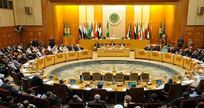
European Union (EU) foreign policy chief Federica Mogherini expressed Wednesday opposition to any plan by U.S. President Donald Trump to move the American Embassy from Tel Aviv to occupied Jerusalem.
During a meeting with the PA Foreign Minister Riad Maliki, Mogherini warned of the serious implications of such a move on the peace process and stability in the region.
She also declared her total support for achieving a Palestinian-European partnership agreement.
For his part, Maliki urged the EU official to make more efforts to prevent Israeli plans to annex Maale Adumim settlement illegally built on West Bank lands.
He also called for more support for the Palestinian economy and prosperity.
The PA minister stressed the importance of implementing the Paris Peace Conference recommendations and the UNSC 2334 resolution that demanded Israel to immediately and completely stop its illegal settlement activities in occupied Palestinian territories including East Jerusalem.
He also warned of the “catastrophic implications” of moving the U.S. embassy from Tel Aviv to Jerusalem.
During a meeting with the PA Foreign Minister Riad Maliki, Mogherini warned of the serious implications of such a move on the peace process and stability in the region.
She also declared her total support for achieving a Palestinian-European partnership agreement.
For his part, Maliki urged the EU official to make more efforts to prevent Israeli plans to annex Maale Adumim settlement illegally built on West Bank lands.
He also called for more support for the Palestinian economy and prosperity.
The PA minister stressed the importance of implementing the Paris Peace Conference recommendations and the UNSC 2334 resolution that demanded Israel to immediately and completely stop its illegal settlement activities in occupied Palestinian territories including East Jerusalem.
He also warned of the “catastrophic implications” of moving the U.S. embassy from Tel Aviv to Jerusalem.
23 jan 2017

Speaking at a Likud faction meeting, the prime minister urged the right flank of his coalition against ‘dictating’ or ‘surprises,’ including initiatives involving the annexation of Ma’ale Adumim; ‘Now is the time for responsible diplomacy with friends,’ not ‘knee-jerk reactions.’
Prime Minister Benjamin Netanyahu expressed his opposition to members of the right-wing flank of his coalition government, warning against initiating steps to annex Ma’ale Adumim on Monday afternoon.
Speaking at a Likud party faction meeting, Netanyahu said: “We have before us massive and significant opportunities for the security and future of the State of Israel. But they require responsibility from us and common sense so that we don’t miss them—neither the hour or the opportunities.”
This was not the time, Netanyahu continued, for what he described as “knee-jerk” reactions or “dictating or for surprises. This is the time for responsible and intelligent diplomacy with friends, diplomacy that will strengthen the cooperation between us and restore the faith in the government of Israel and the new administration in Washington for the betterment of the State of Israel.”
The statement was largely intended for the consumption of Bayit Yehudi leader Naftali Bennett, who has been spearheading a bill to impose sovereignty on Ma’ale Adumim, adding notable impetus behind the proposal since President Trump was elected in November.
Bennett, who serves as Education Minister in Netanyahu’s government, made headlines when he began calling for immediate annexation and declaring the era of a two-state solution dead with Trump’s ascent to the White House.
He also said that he had spoken to President Trump on the phone on Sunday night for half an hour. “During the conversation, he invited me to meet with him in Washington as soon as possible,” the prime minister told his party members.
“I place great importance on this meeting. It is important for the State of Israel. It is also important for the continued strengthening of personal trust between us, the president of the US and me, the prime minister of Israel.
“I feel the expectations that are coming from the majority of Israeli citizens. This is obvious after eight years in which I was placed under enormous pressure on a string of issues, the most important of which was Iran.”
Prime Minister Benjamin Netanyahu expressed his opposition to members of the right-wing flank of his coalition government, warning against initiating steps to annex Ma’ale Adumim on Monday afternoon.
Speaking at a Likud party faction meeting, Netanyahu said: “We have before us massive and significant opportunities for the security and future of the State of Israel. But they require responsibility from us and common sense so that we don’t miss them—neither the hour or the opportunities.”
This was not the time, Netanyahu continued, for what he described as “knee-jerk” reactions or “dictating or for surprises. This is the time for responsible and intelligent diplomacy with friends, diplomacy that will strengthen the cooperation between us and restore the faith in the government of Israel and the new administration in Washington for the betterment of the State of Israel.”
The statement was largely intended for the consumption of Bayit Yehudi leader Naftali Bennett, who has been spearheading a bill to impose sovereignty on Ma’ale Adumim, adding notable impetus behind the proposal since President Trump was elected in November.
Bennett, who serves as Education Minister in Netanyahu’s government, made headlines when he began calling for immediate annexation and declaring the era of a two-state solution dead with Trump’s ascent to the White House.
He also said that he had spoken to President Trump on the phone on Sunday night for half an hour. “During the conversation, he invited me to meet with him in Washington as soon as possible,” the prime minister told his party members.
“I place great importance on this meeting. It is important for the State of Israel. It is also important for the continued strengthening of personal trust between us, the president of the US and me, the prime minister of Israel.
“I feel the expectations that are coming from the majority of Israeli citizens. This is obvious after eight years in which I was placed under enormous pressure on a string of issues, the most important of which was Iran.”
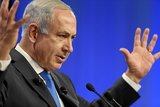
A day after being inaugurated as U.S. President, Donald Trump called Israeli Prime Minister Binyamin Netanyahu and invited him to come to the White House in February.
Following the phone call, Netanyahu told his security cabinet that he will lift all restrictions on settlement construction in East Jerusalem, according to two members of the cabinet who spoke with Israeli media after the meeting.
In addition to allowing unfettered settlement construction in East Jerusalem, the Israeli Prime Minister also told his cabinet that he will rapidly increase land takeovers and displacement of Palestinians in the West Bank as well in order to annex additional land for Israel.
According to a statement from the White House, Trump and Netanyahu discussed the priorities of the new U.S. administration, which, according to Trump, will be “countering the Islamic State and other radical Islamic terrorist groups”.
Trump also stated that he and Netanyahu agreed to consult closely on issues in the region and will focus on the alleged “threats posed by Iran”.
The conversation between the two leaders came just after Donald Trump swore in his son-in-law Jared Kushner as a top White House advisor. Kushner had to receive a special approval from the Justice Department to be allowed to serve in the administration, as the selection of a President’s son-in-law would normally violate laws against nepotism. In this case, however, an exception was made.
Article 5 of the U.S. Code forbids federal officials, including the President, from appointing or employing relatives.
Kushner is known for his zealous support of Israeli policies, including the blatantly illegal takeovers of Palestinian land through military force and the transfer of Israeli civilians onto land seized by military force from the Palestinian people in direct violation of the Fourth Geneva Convention, to which Israel is a signatory.
All Israeli colonial settlements are considered illegal under international law, as they involve the transfer of civilian populations onto land seized and occupied by military force. Israel has transferred more than 400,000 civilians into such settlements over the past 50 years, mainly in the two decades since the “Oslo Accord” peace deal was signed in 1993.
Following the phone call, Netanyahu told his security cabinet that he will lift all restrictions on settlement construction in East Jerusalem, according to two members of the cabinet who spoke with Israeli media after the meeting.
In addition to allowing unfettered settlement construction in East Jerusalem, the Israeli Prime Minister also told his cabinet that he will rapidly increase land takeovers and displacement of Palestinians in the West Bank as well in order to annex additional land for Israel.
According to a statement from the White House, Trump and Netanyahu discussed the priorities of the new U.S. administration, which, according to Trump, will be “countering the Islamic State and other radical Islamic terrorist groups”.
Trump also stated that he and Netanyahu agreed to consult closely on issues in the region and will focus on the alleged “threats posed by Iran”.
The conversation between the two leaders came just after Donald Trump swore in his son-in-law Jared Kushner as a top White House advisor. Kushner had to receive a special approval from the Justice Department to be allowed to serve in the administration, as the selection of a President’s son-in-law would normally violate laws against nepotism. In this case, however, an exception was made.
Article 5 of the U.S. Code forbids federal officials, including the President, from appointing or employing relatives.
Kushner is known for his zealous support of Israeli policies, including the blatantly illegal takeovers of Palestinian land through military force and the transfer of Israeli civilians onto land seized by military force from the Palestinian people in direct violation of the Fourth Geneva Convention, to which Israel is a signatory.
All Israeli colonial settlements are considered illegal under international law, as they involve the transfer of civilian populations onto land seized and occupied by military force. Israel has transferred more than 400,000 civilians into such settlements over the past 50 years, mainly in the two decades since the “Oslo Accord” peace deal was signed in 1993.
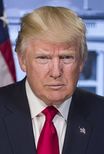
Anonymous sources within the Trump administration in the US allegedly told Israeli News Channel 2 Friday that the new US President, Donald Trump, would on Monday make his first order of business the transfer of the U.S. Embassy in Israel from Tel Aviv to Jerusalem, effectively denying the Palestinian claim to the city.
The planned move by Trump would be in violation of international law and all signed agreements between Israel and the Palestinian Authority, many of which were negotiated by the United States.
Moving the U.S. Embassy in Israel to Jerusalem constitutes a major break in decades of U.S. policy. The city of Jerusalem has a status that is supposed to be negotiated in a future peace deal – prior to the creation of the state of Israel in 1948, it was considered the capital of Palestine.
Since that time, first Jordan and then Israel (beginning in 1967) occupied the city with military forces, and Palestinians have been routinely denied access – including to the third-holiest Islamic site in the world, the Al-Aqsa Mosque.
The Israeli annexation of Jerusalem in 1967 and takeover of the city using military force has never been recognized by the international community, including by the United States.
Moving the U.S. Embassy to Jerusalem would effectively recognize the Israeli military takeover of the city – and set a precedent that any government wishing to annex their neighbor’s land can simply use military force to do so. This type of military takeover has been illegal under international law since World War II, when Hitler used military force to take control of dozens of neighboring countries and annex them to Germany.
If Trump goes forward with this plan on Monday, it would also be seen as a major provocation against Palestinians and the Arab World in general, as well as to Muslims worldwide who have been anxiously awaiting peace negotiations to determine their access to the holy site of the Al Aqsa Mosque and other holy sites in Jerusalem.
The planned move by Trump would be in violation of international law and all signed agreements between Israel and the Palestinian Authority, many of which were negotiated by the United States.
Moving the U.S. Embassy in Israel to Jerusalem constitutes a major break in decades of U.S. policy. The city of Jerusalem has a status that is supposed to be negotiated in a future peace deal – prior to the creation of the state of Israel in 1948, it was considered the capital of Palestine.
Since that time, first Jordan and then Israel (beginning in 1967) occupied the city with military forces, and Palestinians have been routinely denied access – including to the third-holiest Islamic site in the world, the Al-Aqsa Mosque.
The Israeli annexation of Jerusalem in 1967 and takeover of the city using military force has never been recognized by the international community, including by the United States.
Moving the U.S. Embassy to Jerusalem would effectively recognize the Israeli military takeover of the city – and set a precedent that any government wishing to annex their neighbor’s land can simply use military force to do so. This type of military takeover has been illegal under international law since World War II, when Hitler used military force to take control of dozens of neighboring countries and annex them to Germany.
If Trump goes forward with this plan on Monday, it would also be seen as a major provocation against Palestinians and the Arab World in general, as well as to Muslims worldwide who have been anxiously awaiting peace negotiations to determine their access to the holy site of the Al Aqsa Mosque and other holy sites in Jerusalem.
22 jan 2017
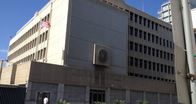
Moroccan activists warned against underway attempts by the newly-sworn in US President Donald Trump to relocate the US embassy from Tel Aviv to Occupied Jerusalem.
Head of the Moroccan Observatory against Normalization with Israel, Ahmad Oihaman, urged all Arab and Islamic countries to take urgent action as regards Trump’s intents to transfer the US embassy to Occupied Jerusalem.
The observatory warned of the explosive fallouts of such a “dangerous move,” urging the international community and the concerned human rights institutions to take up their responsibilities vis-à-vis the decision.
Coordinator for the Moroccan Initiative for Support and Victory, Aziz Hanawi, also called for an urgent reaction as regards the move, warning of the hazardous upshots of such a projected step.
He held the Muslims, Arabs, and the UN responsible for regional and international repercussions of the US attempts to relocate the embassy to Occupied Jerusalem.
Abdul Kader al-Alami, chairman of the National Action Group to Support Iraq and Palestine, said the decision to transfer the embassy makes part of the US biased anti-Palestine stance.
“At a time when the world has been seeking a fairer solution to the Palestinian cause, Trump comes out with a new tactic aimed at imposing a new fait accompli on the ground,” the activist further stated.
Newly-sworn in Trump promised during his electoral campaign to relocate the US embassy in Israel from Tel Aviv to Occupied Jerusalem, in a move that contravenes US long-standing policy.
Head of the Moroccan Observatory against Normalization with Israel, Ahmad Oihaman, urged all Arab and Islamic countries to take urgent action as regards Trump’s intents to transfer the US embassy to Occupied Jerusalem.
The observatory warned of the explosive fallouts of such a “dangerous move,” urging the international community and the concerned human rights institutions to take up their responsibilities vis-à-vis the decision.
Coordinator for the Moroccan Initiative for Support and Victory, Aziz Hanawi, also called for an urgent reaction as regards the move, warning of the hazardous upshots of such a projected step.
He held the Muslims, Arabs, and the UN responsible for regional and international repercussions of the US attempts to relocate the embassy to Occupied Jerusalem.
Abdul Kader al-Alami, chairman of the National Action Group to Support Iraq and Palestine, said the decision to transfer the embassy makes part of the US biased anti-Palestine stance.
“At a time when the world has been seeking a fairer solution to the Palestinian cause, Trump comes out with a new tactic aimed at imposing a new fait accompli on the ground,” the activist further stated.
Newly-sworn in Trump promised during his electoral campaign to relocate the US embassy in Israel from Tel Aviv to Occupied Jerusalem, in a move that contravenes US long-standing policy.
21 jan 2017

According to a report issued by Haaretz Israeli newspaper on Saturday, officials from Israeli government, army, police and Shin Bet earlier this week presented Israeli Prime Minister Benjamin Netanyahu and senior members of the cabinet with scenarios that could result from relocating the US Embassy from Tel Aviv to Occupied Jerusalem.
Haaretz quoted two senior Israeli officials as saying that "Netanyahu made it clear that Israel has no solid information on if and when Trump will issue a notice to transfer the embassy to Jerusalem". The prime minister, however, instructed the security officials to prepare for such a possibility from the moment that the new US president Donald Trump is sworn in.
According to Haaretz, the two officials said that the purpose of the meeting was to prepare for possible repercussions from the relocation of the embassy, particularly in light of a media campaign being waged against it by the Palestinian Authority including possible incitement to violence by Palestinian officials in recent weeks regarding the matter.
Nonetheless, officials from the Shin Bet, Military Intelligence and the police’s intelligence division told the meeting that there has been no specific information on any plans to carry out attacks or disturbances should the embassy be transferred.
One of the scenarios presented to the ministers, Haaretz said, was that the move could even evoke a relatively muted response, with the Palestinians solely confining their reactions to the media and political sphere.
Haaretz quoted two senior Israeli officials as saying that "Netanyahu made it clear that Israel has no solid information on if and when Trump will issue a notice to transfer the embassy to Jerusalem". The prime minister, however, instructed the security officials to prepare for such a possibility from the moment that the new US president Donald Trump is sworn in.
According to Haaretz, the two officials said that the purpose of the meeting was to prepare for possible repercussions from the relocation of the embassy, particularly in light of a media campaign being waged against it by the Palestinian Authority including possible incitement to violence by Palestinian officials in recent weeks regarding the matter.
Nonetheless, officials from the Shin Bet, Military Intelligence and the police’s intelligence division told the meeting that there has been no specific information on any plans to carry out attacks or disturbances should the embassy be transferred.
One of the scenarios presented to the ministers, Haaretz said, was that the move could even evoke a relatively muted response, with the Palestinians solely confining their reactions to the media and political sphere.
